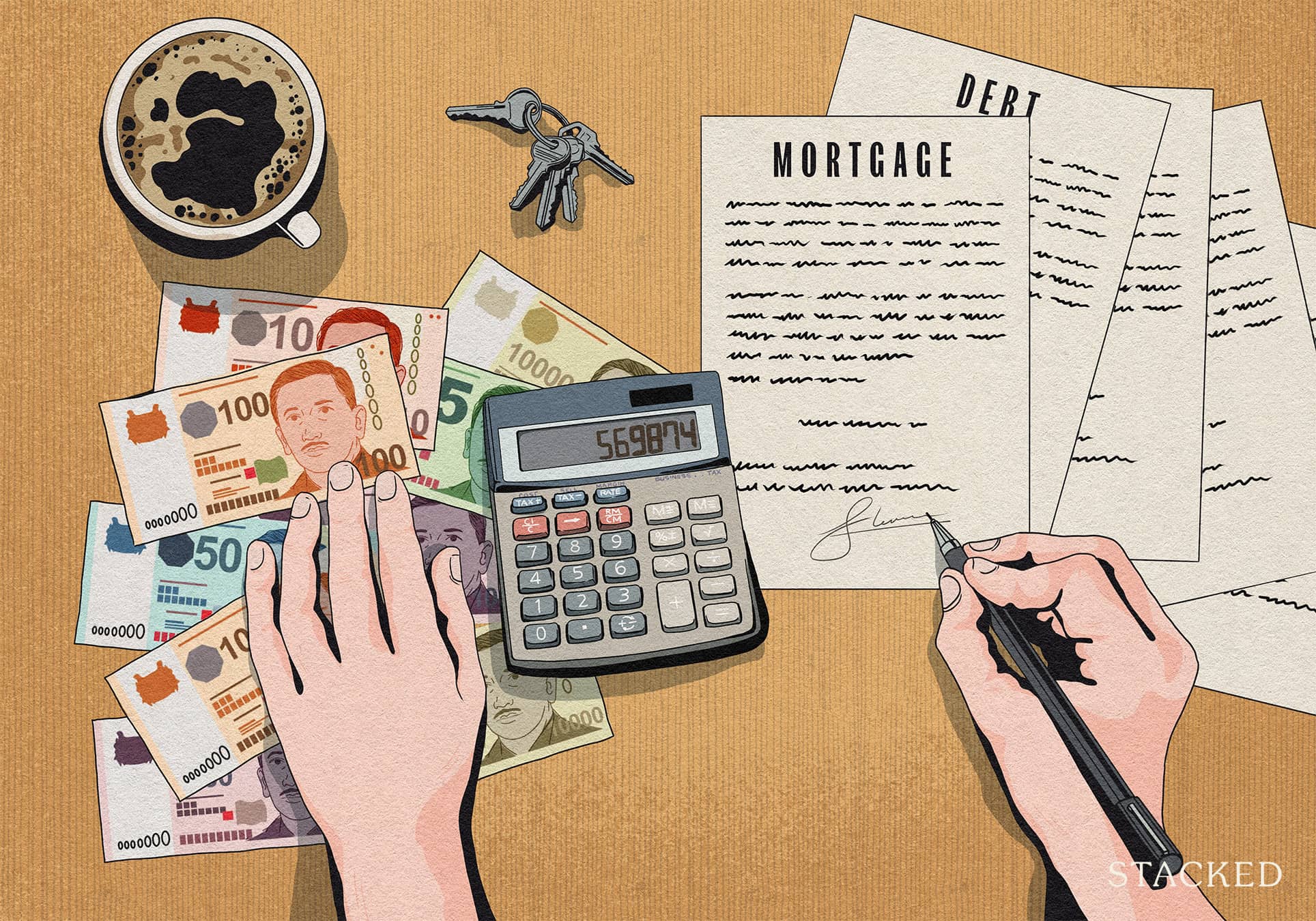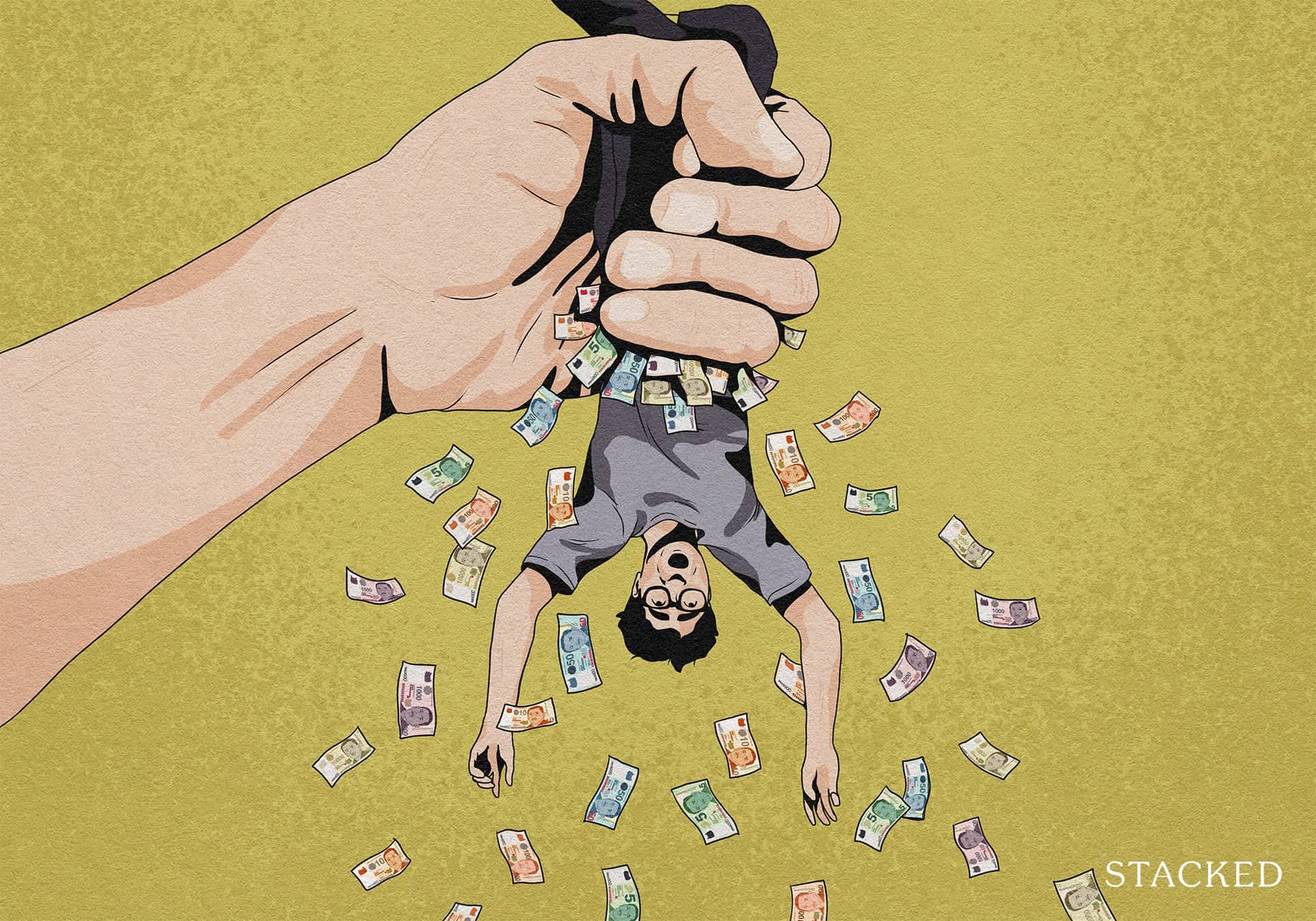Should You Pay Off Your Existing Home Loan In 2023?
February 9, 2023

In 2023, mortgage interest rates are a key concern. This is a steep difference between the tail end of 2008 to 2021 when the average interest rate seldom broke past two per cent (it’s three per cent and climbing at the moment). This has led to questions on whether (for those who have the means) they should go ahead and pay off their remaining mortgage. Here’s our answer:
Table Of Contents
- The general answer for most people is going to be no
- There is also the issue of being able to invest in other assets
- Benefits of paying your mortgage early
- 1. Borrowers with a small outstanding loan
- 2. People unable to secure mortgage insurance for any reason
- 3. Anyone intending to purchase a second property
- 4. Homeowners with debt anxiety
- A note on prepayment penalties
- Finally, for those worried about interest rates, remember these move up and down over time
So many readers write in because they're unsure what to do next, and don't know who to trust.
If this sounds familiar, we offer structured 1-to-1 consultations where we walk through your finances, goals, and market options objectively.
No obligation. Just clarity.
Learn more here.
The general answer for most people is going to be no
Many (but not all) people will find that paying off the entire mortgage at once has little benefit, and just results in a loss of liquidity. The rationale goes something like this:
If you owe $300,000 on your remaining home loan, and you have $300,000 in cash, your net position is: ($300,000 cash) – ($300,000 debt) = $0
If you repay your entire existing home loan, your net position then becomes:
($0 cash, as you’ve repaid the whole loan) + ($0 debt) = $0
However, the former is in a better position than the latter. The reason is that in the former, you have cash for various emergencies and opportunities. If you have zero debt but also zero cash, you could face a liquidity issue if you run into a crisis.
In an emergency, this could force you to sell your home, or use alternative forms of credit (e.g., personal loans) which end up being far more expensive than your mortgage ever was.
Do also note any redemption penalties involved that can add to your cost
For instance, if your package expires you are likely to not face any charges. But if you’re still in the lock-in period, you typically will be charged 0.75% of the remaining loan upon sale or 1.5% of the remaining loan if the full redemption is done.
There is also the issue of being able to invest in other assets
By not paying off your loan in full, you have sufficient cash to invest in other assets like stocks, bonds, etc. We don’t dispense financial advice with regard to that – but if you speak to some financial professionals, we’re sure they’ll highlight some investment options that could easily outpace your home loan interest rate.

This is also a matter of diversification.
If the entirety of your wealth is locked up in a single asset (in this case your property), you’re at serious risk during a property downturn. It’s not a very balanced approach. So for most people, it’s probably not advisable to throw every last cent into their home, to pay off the mortgage early.
That being said, some people could benefit from paying off their mortgage early. Some examples of this include:
- Borrowers with a small outstanding loan
- People unable to secure mortgage insurance for any reason
- Anyone intending to purchase a second property
- Homeowners with debt-anxiety
1. Borrowers with a small outstanding loan
If your loan amount is too small, banks usually won’t consider refinancing (even if they did, the fees involved may not be justified). As such, some borrowers who just have a small amount left to clear may want to do so, before interest rates rise further.
The tricky bit is that what’s “small” is quite subjective. An outstanding sum of $100,000, for instance, may be too small for a bank to want to refinance; but it may be a staggering amount based on your finances.
In general, pay off the last remaining amount only if it wouldn’t completely deprive you of savings.
2. People unable to secure mortgage insurance for any reason
Mortgage insurance pays off the outstanding home loan if a borrower dies or is permanently disabled (some variations may exist between policies, but most work this way).
Note that, unlike HDB’s Home Protection Scheme, mortgage insurance for private properties is entirely up to the borrower; you’re not obliged to have it, but it’s not automatically there for you either.
More from Stacked
We Own A 2-Bedder Condo In Clementi: Should We Decouple To Buy A Resale 3 Bedder Or Sell?
My wife and I have been a long time reader of Stacked home and we enjoyed the multiple analysis articles…
There are rare individuals who may not be insurable, due to factors like pre-existing conditions. If you’re in this situation, and you are the sole breadwinner, it could make sense to pay off the mortgage more aggressively (at the very least, you will leave a smaller debt if anything happens to you).
Note: We’ve heard that some people will instead cover the mortgage via life insurance. We’re not financial advisors, so we would suggest you check with the professionals if that would work for you.
However, we would add that – for private properties – it’s possible that the outstanding loan amount cannot sufficiently be covered by life insurance pay-outs (or might devour the entirety of the pay-out). A typical loan for a new launch, mass market condo today, for instance, will generally involve a loan quantum above $1 million. This is quite a sum to cover with life insurance policies, so you may want to make it a point to pay down the loan more aggressively anyway.
3. Anyone intending to purchase a second property
If you have one outstanding home loan when you purchase a second property, the maximum loan quantum falls to 45 per cent (if the loan tenure for the second property extends past 30 years or the retirement age of 65, the quantum drops to 25 per cent).
If your plans involve purchasing a second home, you’re almost always advised to discharge the existing loan first. There’s seldom a good reason to lock up so much cash in a large down payment.
4. Homeowners with debt anxiety
Some people are just uncomfortable with debt, and paying off the loan can ease anxiety. While there’s nothing inherently wrong with this, do ensure that the comfort doesn’t come at the cost of sensible financial planning.

If you’re completely bereft of savings after paying off your home loan, it’s probably a dangerous thing to even consider; regardless of how at ease you might feel. Speak to a qualified financial planner first.
A note on prepayment penalties
If you are trying to discharge the home loan early, there may be a penalty involved – this is usually 1.5 per cent of the undisbursed loan amount. However, some loan packages will waive this, or at least limit the maximum penalty – check the terms and conditions before going ahead.
Also note that the prepayment penalty period is not for the duration of the entire loan – if you’re past this set period, you could repay the loan without penalty. It might be worth waiting a little longer to reach this point, before paying off the loan.
Finally, for those worried about interest rates, remember these move up and down over time
The US Federal Reserve (the Fed) hikes rates to combat inflation. Once the target inflation rate is reached (currently set at two per cent), the rate hikes will probably stop.
Also, as we saw with the Global Financial Crisis and Covid-19, the Fed does lower interest rates to act as a stimulus in times of crisis. This means the current state of higher interest rates can’t be assumed to be permanent. A home loan, with its long tenure of around 25 or even 30 years, is likely to see many ups and downs in interest rates over the years.
We would discourage an episodic point of view, where you overcommit to paying off the loan just because rates are higher right now. Focus on long-term affordability, rather than fluctuations you can’t control.
For more on mortgages and trends in the property market, as well as in-depth reviews of new and resale properties, follow us on Stacked.
At Stacked, we like to look beyond the headlines and surface-level numbers, and focus on how things play out in the real world.
If you’d like to discuss how this applies to your own circumstances, you can reach out for a one-to-one consultation here.
And if you simply have a question or want to share a thought, feel free to write to us at stories@stackedhomes.com — we read every message.
Frequently asked questions
Should I pay off my mortgage early in 2023?
When is it a good idea to pay off my home loan early?
What are prepayment penalties on my mortgage?
How do interest rate changes affect my decision to pay off my mortgage?
Is it better to pay off my mortgage if I can’t get mortgage insurance?
Should I pay off my mortgage before buying a second property?
Ryan J. Ong
A seasoned content strategist with over 17 years in the real estate and financial journalism sectors, Ryan has built a reputation for transforming complex industry jargon into accessible knowledge. With a track record of writing and editing for leading financial platforms and publications, Ryan's expertise has been recognised across various media outlets. His role as a former content editor for 99.co and a co-host for CNA 938's Open House programme underscores his commitment to providing valuable insights into the property market.Need help with a property decision?
Speak to our team →Read next from Property Market Commentary

Property Market Commentary How I’d Invest $12 Million On Property If I Won The 2026 Toto Hongbao Draw

Property Market Commentary We Review 7 Of The June 2026 BTO Launch Sites – Which Is The Best Option For You?

Property Market Commentary Why Some Old HDB Flats Hold Value Longer Than Others

Property Market Commentary We Analysed HDB Price Growth — Here’s When Lease Decay Actually Hits (By Estate)
Latest Posts

Singapore Property News REDAS-NUS Talent Programme Unveiled to Attract More to Join Real Estate Industry

Singapore Property News Three Very Different Singapore Properties Just Hit The Market — And One Is A $1B En Bloc

On The Market Here Are Hard-To-Find 3-Bedroom Condos Under $1.5M With Unblocked Landed Estate Views




































0 Comments